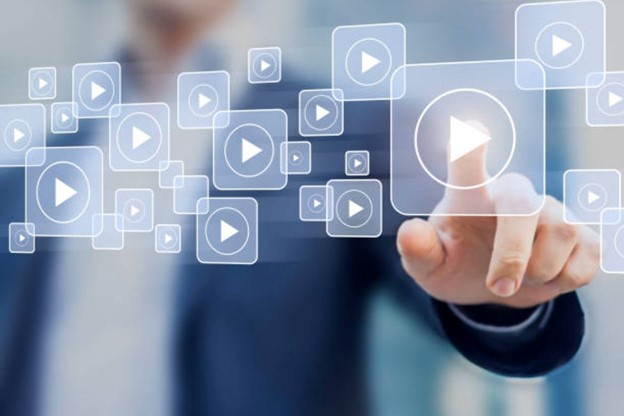Safeguarding the Guest Experience: The Role of Hospitality Managed IT Services in Cybersecurity
Convenience and technology are the leading ways to satisfy guests in today’s hospitality industry. Yet, the question remains: how to ensure the security of sensitive data in such an environment? The way digital check-ins, mobile key cards, and online reservations have reshaped guest experiences has also opened up vulnerabilities to some pretty serious cyber threats. This is where hospitality managed IT services step in, providing the necessary expertise and tools to protect sensitive guest data and maintain trust in a digitally connected world.
Here’s a closer look at the cybersecurity challenges in the hospitality sector and how managed IT services help hotels and resorts stay ahead of any possible threats.
1. The Growing Role of Technology in Hospitality
Technology rewrites the rulebook on how guests interact with hotels, from personalized booking experiences to smart room controls. While digital innovations such as self-service kiosks, mobile applications, and cloud-based reservation systems offer convenience, they also involve handling volumes of sensitive information like credit card data and personal identification.
Cybersecurity Implications:
- Data Collection: Hotels collect and store vast amounts of personal data, making them prime targets for cybercriminals.
- More Attack Surfaces: Multiple digital touchpoints increase vulnerabilities.
- Reputation Risk: A data breach can erode guest trust and tarnish the brand’s reputation.
Example: An insecure hotel Wi-Fi network, if compromised, could expose customer browsing habits or sensitive payment information, leading to legal and financial consequences.
Hospitality Cybersecurity Insight: Safeguarding guest data isn’t just a technical requirement—it’s integral to brand loyalty and customer trust.
2. How Hospitality Managed IT Services Fortify Cybersecurity
Managed IT services in hospitality offer tailored solutions that address the unique cybersecurity needs of the industry. Outsourcing IT management provides hotels access to advanced technologies and expert guidance without the overhead of maintaining an in-house team.
Key Cybersecurity Benefits of Managed IT Services:
- 24/7 Monitoring: Continuous system surveillance to identify and mitigate threats in real time.
- Data Encryption: Protects sensitive information during storage and transmission.
- Firewall and Endpoint Protection: Secures both network perimeters and devices, including those used by guests.
- Compliance Management: Ensures adherence to GDPR, PCI DSS, and other data protection regulations.
Example: A hotel chain can use managed IT services to implement a zero-trust security model, where every access request is validated, reducing the risk of unauthorized breaches.
Guest Data Protection Tip: A managed IT service provider with hospitality expertise delivers solutions tailored to the sector’s unique challenges.
3. Threat Landscape for the Hospitality Sector
Understanding the types of cyber threats targeting the hospitality industry is crucial for mounting effective defenses.
Common Threats Include:
- Ransomware Attacks: Cybercriminals encrypt hotel systems and demand payment for access restoration.
- Phishing Scams: Fraudulent emails or messages trick employees or guests into revealing sensitive information.
- Data Breaches: Hackers exploit vulnerabilities to access guest records in reservation systems or databases.
- IoT Vulnerabilities: Unsecured smart devices in hotel rooms can serve as entry points for attacks.
Example: In 2017, a ransomware attack locked guests of a luxury hotel in Austria out of their rooms, highlighting the need to secure internal systems and IoT devices.
Hospitality Cybersecurity Tip: Regularly run vulnerability assessments to identify and patch weak points before attackers can exploit them.
4. Strategies for Improving Cybersecurity in Hospitality
Implementing proactive measures significantly reduces the risk of cyber threats. Managed IT services offer a systematic approach to strengthening defenses.
Best Practices:
- Secure Guest Wi-Fi: Separate it from internal networks and use strong encryption. Update passwords regularly.
- Regular Updates: Keep all software and systems up to date to patch vulnerabilities.
- Employee Training: Train staff to identify phishing attempts and practice cybersecurity hygiene.
- MFA (Multi-Factor Authentication): Add an extra layer of security for accessing sensitive systems.
- Incident Response Plans: Prepare a clear action plan to mitigate breaches and resume operations swiftly.
Example: Managed IT services can automate software updates, ensuring systems remain secure without disrupting daily operations.
Guest Data Protection Insight: Simple measures like network segmentation and strong passwords can significantly enhance security without inconveniencing guests.
5. The Cost of Neglecting Cybersecurity
Failing to prioritize cybersecurity in the hospitality industry can lead to severe consequences, including financial loss, legal penalties, and reputational damage.
Possible Costs Include:
- Financial Impact: Ransomware payments, lost revenue during downtime, and legal fees.
- Reputation Damage: Negative publicity erodes customer trust.
- Compliance Fines: Non-compliance with data protection regulations can result in hefty penalties.
Example: A major data breach affecting thousands of guests at a global hotel chain resulted in significant regulatory fines and lawsuits, underscoring the importance of robust cybersecurity measures.
Hospitality Cybersecurity Tip: Investing in managed IT services is a proactive step to minimize risks and protect your business’s bottom line.
6. Future Directions in Hospitality Cybersecurity
As technology and threats evolve, the hospitality industry must stay ahead with innovative security solutions. Managed IT services continue to adapt, leveraging emerging technologies to outpace cybercriminals.
Emerging Trends:
- AI-Driven Security: Using artificial intelligence to detect and respond to threats in real time.
- Blockchain for Data Security: Enhances transparency and security in transactions and data storage.
- Biometric Authentication: Fingerprint or facial recognition replaces traditional passwords.
- Cloud Security Solutions: Centralized management of security for multiple locations.
Example: A hotel chain employing AI-powered tools facilitated by managed IT services can monitor network traffic, identify suspicious behavior, and take immediate action to minimize damage.
Guest Data Protection Insight: Staying updated on emerging technologies ensures continuous security in an ever-changing landscape.
Conclusion: Partner for a Secure Future
In the hospitality industry, trust is everything. Guests not only expect seamless service but also demand assurance that their data is secure. By investing in hospitality managed IT services, hotels and resorts can meet these expectations while staying ahead of cyber threats. From digital check-ins to secure payment systems, managed IT services are the backbone of a safe, modern guest experience.
As technology continues to revolutionize the travel industry, partnering with the right IT experts ensures your business is prepared to navigate both challenges and opportunities in a digitally connected future.






